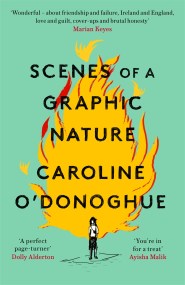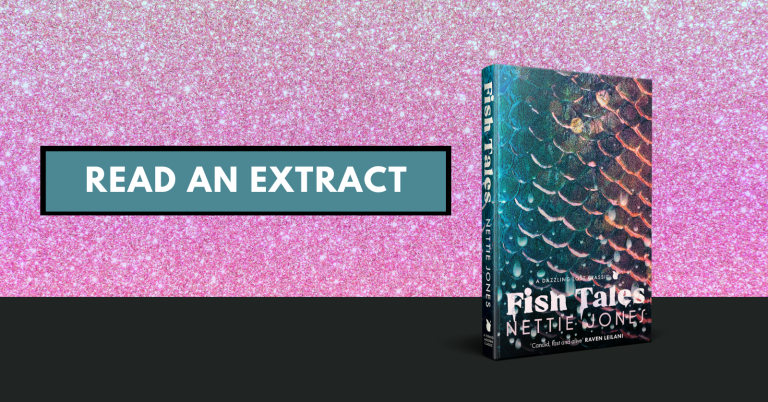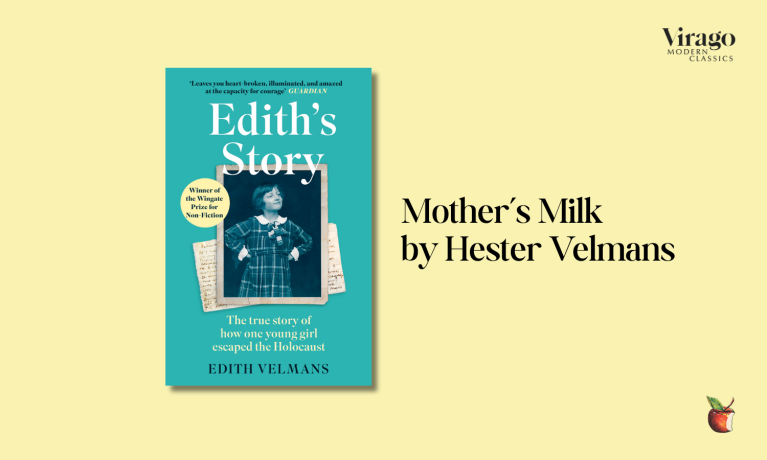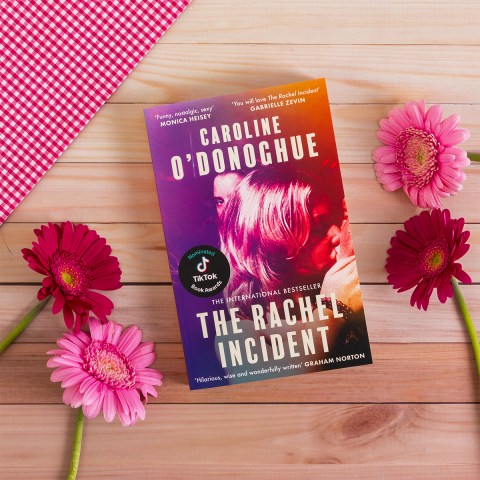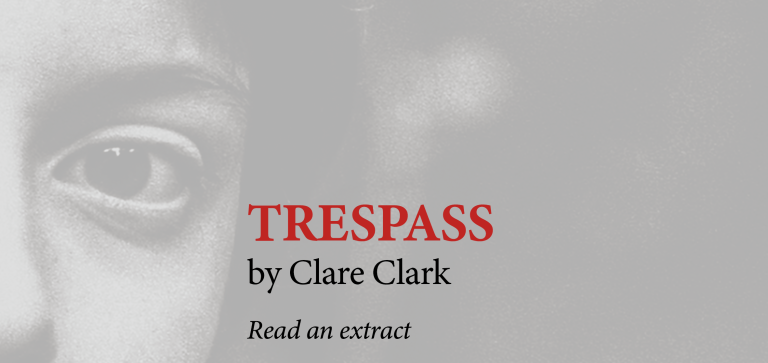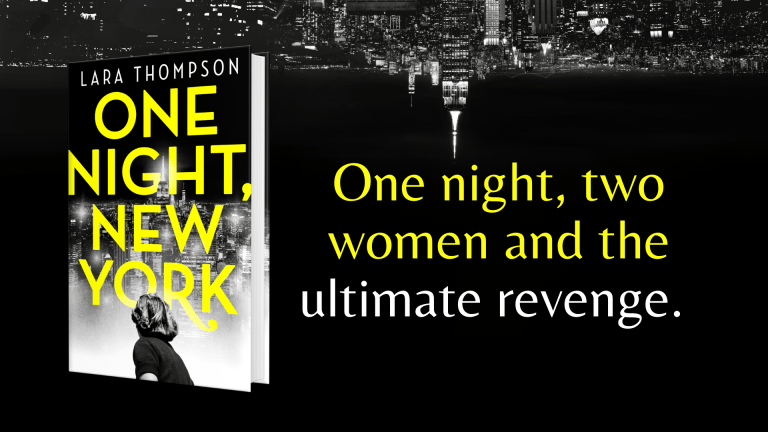Read an extract from Scenes of a Graphic Nature by Caroline O’Donoghue
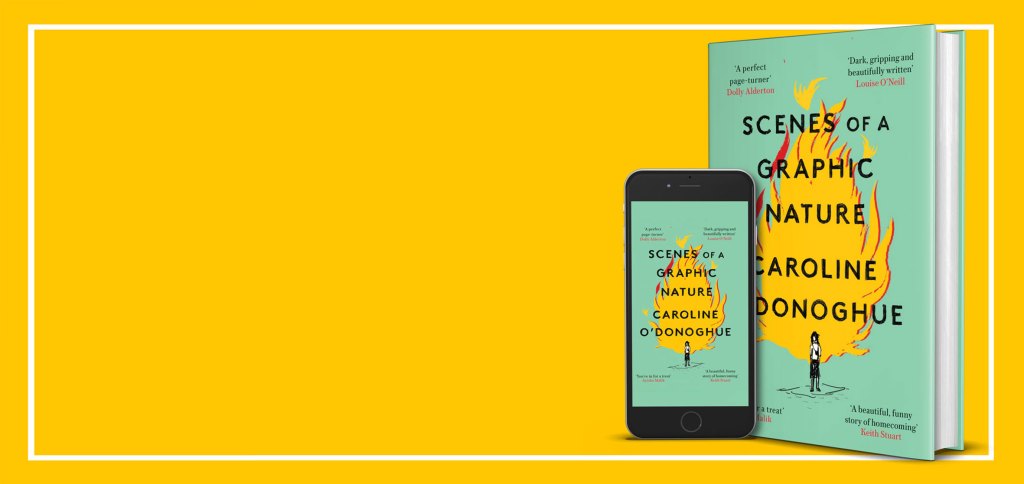
After a tough few years floundering around the British film industry, experimenting with amateur pornography and watching her father’s health rapidly decline, Charlie and her best friend Laura journey to her ancestral home of Clipim, an island off the west coast of Ireland. Knowing this could be the last chance to connect with her dad’s history before she loses him, Charlie clings to the idea of her Irish roots offering some kind of solace. But when the girls arrive at Clipim, Charlie begins to question both her difficult relationship with Laura and her father’s childhood stories. Before long, she’s embroiled in a devastating conspiracy that’s been sixty years in the making . . . and it’s up to her to reveal the truth of it.
PART ONE
As sad misfortune came over me Which caused me to stray from the land Far away from me friends and relations Betrayed by the black velvet band
‘The Black Velvet Band’, traditional Irish folk song
1
‘Connor Cronin was a pudgy boy,’ he muses. ‘And he made for a pudgy corpse.’
My father’s voice is tinny coming out of the cheap speaker, made worse because the batteries are almost gone. His voice is still good, though, his Kerry accent joyful and compact as a grape.
‘Boy’ is pronounced ‘biy’. ‘Corpse’ is pronounced ‘karps’.
‘Are you sure you want to say that, Dad?’
‘Say what?’
‘Do you want to go on the record, calling a little dead boy “fat”?’
‘I said “pudgy”. It’s a story detail, Charlie. Stories need details. Otherwise it’s just a big long list of things that happened.’
The Dictaphone picks up my long outward sigh. I hate myself for sighing. For being so vividly exasperated by my own father, who was just trying to answer a question, after all.
I should have been nicer. I should be nicer. I press my ear closer to the tiny speaker as though it were a seashell or a stringed-up tin can.
‘I just don’t think it’s very . . . ’
‘What? Politically correct?’
‘Don’t say it like that.’
‘Like what?’
‘Like there’s something weak about not wanting to hurt people.’
I click down the big plastic ‘stop’ button on my old Dictaphone. I bought it the year I turned twenty- five, when Laura went travelling and I had moved home. I was supposed to have gone with her, but my dad’s cancer – which, we had been promised, would be zapped quickly by chemotherapy, and be in the rear- view mirror of our lives before we knew it – came back.
The cancer and I have spent the last four years boomeranging to my father’s bedside. I have been tailing this disease like an undercover cop, furiously taking notes on its progress and letting my twenties slip by in the process. I’ve tried to be productive. It’s what you do. ‘Life is what happens when you’re making other plans.’ People love telling me this, particularly as they are making other plans.
I used the time at home to write scripts, and to interrogate my dad in daily interviews about his childhood in Clipim, a small island off the west coast of Ireland. Interviews that made him feel famous, and me feel like there was a point to me being home in the first place. I thought, as the creative one in the family, it was my job to be my father’s biographer. To preserve the official record of his unusual and tragic life story. Soon, the two activities started to bleed into one another. What was the point of me writing endless, never-to-be-commissioned screenplays, when there was a real story sitting right in front of me?
By the time Laura was back from her year abroad, I had both the script and the grant funding to make the movie that would eventually become It Takes a Village.
It took two years. Two years of sharing everything, from the microwave-ready meals to cigarettes to the mildewed, queen- sized bed that we were half- certain had bed bugs.
If I had known it would end so quickly, I would have treasured it more.
Now, Laura’s gone again. Lost in the undertow of heterosexual commitment and surprise weekends in Belgium; leaving me to mope around our old bedsit like a ghost. I still seem to spend most of my time in Essex, hanging around my parents’ house, listening to old recordings of my dad telling me about his early years and trying to believe that it is possible to beat cancer for a third time.
I have memorised my father’s childhood so well that my own feels like tracing paper over a much stronger image. His earliest memories are ones of drama, death and destruction. My earliest memories are of hearing about it.
Pudgy. What a word to use. Festive and jolly and sweet.
I press ‘play’ again. I can hear my dad – sounding rudely, obnoxiously healthy, despite it being his second bite of the cancer cherry – tutting me under his breath.
‘Charlie, my love,’ he says, a little song in his voice, the song that always creeps back in when he’s convinced of his own moral fortitude and wants to be playful about it, ‘if you think you can get through a story like this without upsetting people, then . . . ’
The little light on the Dictaphone fades from traffic-light red to a dull cherry, and then to grey. The battery finally runs out, and I don’t get to hear what happens when you think you can’t upset people. There’s noise downstairs. Mum is home. She always forgets to take bags to the supermarket and never wants to buy them when she’s there, so she ends up stacking tins of beans and packets of ravioli into her arms, then releasing it all on to the kitchen table like a jewel thief emptying a pillowcase.
‘Charlie!’ she calls.
I peep through the door of my old bedroom. I listen to her movements and creep out as light- footed as I can, judging her mood by her voice.
‘Charlie, are you up there? Come on, there’s a load of shopping.’
I come down, comfortable that this is about food and not about Dad. ‘Hey,’ I say, ‘you weren’t gone long.’
My mum is short, like me, and blonde, not like me. She moves around the kitchen, hunched and defensive as an armadillo, not really registering my presence. I start packing Greek yogurt and raw chicken into the fridge, then scooping out the rotting bananas in the fruit bowl to replace them with fresh ones.
‘Keep them,’ she instructs.
‘But they’re vile.’
‘Banana bread.’
‘I have never once seen you make banana bread.’
‘Dad loves it. We can make it tonight and bring it up to him tomorrow.’
I start packing Fruit n’ Nut into the long cupboard where the dry things are kept. I say nothing.
‘I’m heading up in a minute. You’re coming, aren’t you?’ ‘Of course I’m coming.’
The words come out of my mouth like thumbtacks.
‘I just need to shower first.’
She looks me up and down for the first time today. ‘It’s almost two, you know.’
‘I was up late working last night.’
‘Working? On what?’
‘Film stuff.’
‘You might be better off looking for something closer to an actual job.’
‘This is my actual job.’
She raises her eyebrows, that being the dignity of her answer.
‘Are you coming or aren’t you? You can’t come looking like that.’
‘I’ll be super quick. I promise.’
I’m not super quick, though. I get out of the shower and sit on the edge of my bed, tapping out messages to Laura.
Do we have any more festivals coming up?xx
‘Charlie!’ Mum calls up the stairs. ‘Are you coming or not?’ ‘Two seconds!’ I yell back from behind the door, conscious that she’ll see me in my towel and know that it won’t be two seconds.
‘Make your bed, tidy your room.’
‘Well, do you want me to come quickly or do you want me to make my bed and tidy my room?’
‘WHAT?’
‘I said, do you want me to—’
‘I CAN’T HEAR YOU; I’LL BE IN THE CAR.’
Laura texts back.
Brighton Brave in September, Cornwall Film Fest in Nov xx
September. Five months away. I can feel the time stretch-ing out like hot tar in front of me. What am I supposed to do with myself?
Since Laura moved out of our flat to live with Mike, our time together has become sporadic. At first the distance felt like it could be good for our friendship. She would habitually return to West Norwood, fling herself back on our queen-size bed, and take long drags on her cigarette while complaining that Mike wouldn’t let her smoke indoors. I learned to love this version of us. There was no choice but to. It was like Laura was the child of some phantom divorce. That I was the fun, Saturday parent she thought about all week.
I let her use anything as an ashtray: jars, mugs, a cereal bowl that I hadn’t sipped the milk out of yet. Then one day, eight weeks after she moved out, she walked into our old room and didn’t immediately fall backwards on to the unmade bed. She picked up a mug on my nightstand.
‘You know there’s a cigarette butt in this, right?’
Now, we only seem to see each other when it’s about the film. We had a rash of festival appearances back in November, all at least an hour outside of London, all introduced by the organiser as ‘the third annual Somerset Shine Film Festival’ with an air of genuine amazement that they had managed to put on a festival not just once but three times.
Mum’s sounding her ‘hurry the fuck on’ beep: three short beeps and two really, really, long ones. I pull on a T-shirt and run out to the car, my hair wet and hanging in stunted clumps around my neck. ‘Charlie,’ my mum says, in a tone she found when she started taking me to mass and hasn’t stopped using since, ‘you’re almost thirty. Do I really have to tell you to wear a bra to the hospital?’
‘I only just turned twenty- nine, and I’m like . . . half an A-cup. Bras are purely ornamental for me.’
‘And the hair, Charlie. Really. Do you want all Dad’s pals to think you’re some kind of . . . skag head?’
‘I’m sure they’re probably too focused on their own cancer to think about it, honestly,’ I reply, wondering where she learned the phrase ‘skag head’. We go quiet then, because I said cancer, and Mum prefers to be euphemistic with this kind of thing. ‘The C Word’ is preferable, but ‘Dad’s trouble’ is what she uses herself.
I clear my throat. ‘I was thinking,’ I eventually volunteer, ‘maybe I could load up my old iPod for Dad. Give him some-thing to listen to when he’s in there.’
‘That sounds like a good idea,’ she says, indifferent and apolitical as a UN summit.
‘Yeah,’ I say awkwardly. ‘I’ll put on all the old Irish showbands he loves so much. Joe Dolan. Luke Kelly. The Dubliners. All that.’
Her mouth goes tight.
‘Now you don’t want to depress him, Charlie.’
‘Why would that depress him? He loves that stuff.’
She presses her lips together like she is trying to even out her lipstick, but doesn’t say anything.
It’s a funny thing, the Irishness in our house. Growing up, it pervaded everything emotionally but it touched nothing physically. Dad’s mum had been a widow, and when she died before I was born, he lost all reason to go to Ireland. He had no old friends, no surviving playmates: just the gruesome honour of being the last boy of his generation to survive the disaster in the old schoolhouse.
‘Maybe Frank Sinatra?’ she says finally.
When we get to the hospital, he’s asleep, but not deeply. This is the thing with people in hospitals. It’s almost impos-sible for them to get a full, unbroken night of sleep. They’re woken up either by nurses’ checks or by their room- mates, resulting in a perpetual, day-l ong doze that is interrupted by meals, visitors and habitual prodding by whoever’s on call.
His eyes are closed and his lips are slightly parted, mouth-ing out a low, quiet snore. He has a pyjama shirt on but the buttons aren’t done up, so I can see tufts of his chest hair. I sit on the edge of the bed, lowering my weight on to it carefully, as if there are delicate china figurines under the duvet. He wakes up, smiles at me, and takes my hand into both of his.
‘My love,’ he says, and his voice is hoarse with tenderness and phlegm.
‘Hi, Dad. How are you feeling?’
‘I’m all right, pet. Another awful night.’
‘Did Corned Beef keep you up?’
He gives a long, purposeful side-eye to the bed next to him, a look that is utterly lost as the curtain is drawn around it.
‘You’re feckin’ right he did. All this moaning and groaning and waking up and calling the nurse. Appalling behaviour.’
Corned Beef is an eighty-something man who has been sharing a room with Dad for about a week now. He refuses to eat anything the hospital provides, instead asking his grown- up kids to bring in packets and packets of the stuff. He has loud nightmares, which Dad resents him for. My dad resents anyone who gives evidence of having a subconscious. Unless they are suffering from PTSD – and even then, the PTSD must be gained specifically from having fought in a war – they are, according to him, taking the piss. He is a big fan of that Freud quote about how the Irish are impervious to psychoanalysis, and brings it up a lot, usually in conjunction with: ‘Well, Charlie, I never needed any therapy, and think about what happened to me . . . ’
When he is finished giving the plastic curtain a filthy look, he asks me how I am, and how work is at the cafe, and whether there’s any news about the film.
‘We’re still waiting to hear back from a bunch of festivals,’ I say, my voice falsely chipper. ‘But we’re getting a really good response so far.’
‘Is Laura doing any more of them panels?’
I feel my ears go red. ‘I don’t know.’
‘She should. She was so good at the last one. Wasn’t she, Sharon?’ Mum walks in with food from the Tesco Express down the road and starts unloading plastic containers of pesto pasta salad and Walkers Sensations crisps. My mum is the kind of person who is still very impressed by Sensations crisps, believing they can elevate any kind of situation to the status of informal dinner party among close friends.
‘Who’s this? Laura?’ Mum asks, shuffling the crisps into a bowl. ‘Is she still working at Channel 4?’
Address isn’t the only thing that’s changed with Laura recently. It isn’t that Laura is necessarily better than me, it’s just that her skill set is more marketable. In the hopeful window of time after Uni but before cancer, we were both working as runners on movie sets. They were jobs set up by our University to prove to other applicants that over 90 per cent of graduates really did go on to have careers in the entertainment industry. The reality, however, was that we were just warm bodies, barely trusted to knock on dressing-room doors to remind actors of their call times.
Laura was good at it, though. She came back from travel-ling and was remembered fondly by everyone, sailing right into a job as a camera assistant. Now she’s making great money at a production company, working the camera for the kind of reality shows you see on Channel 5 in the middle of the day.
I am making lattes in The Blue Door, a cafe a hundred yards from our old flat.
‘She is,’ I answer, even though she doesn’t work at Channel 4. I stuff five crisps into my mouth.
‘Do you think she could get you a job, then?’
To tell the truth, I’ve sort of wondered that myself. I had assumed that as Laura started getting jobs, she’d naturally find one for me. We are co-creators, after all.
I could tell my parents this – that I am as confused by my lack of employment prospects as they are – and maybe I would if it was just me and Dad. But to tell Mum that I have hurt feelings would give her fuel for a grudge, and there’s nothing she loves more than a grudge. I pretend not to hear and start looking around the room for inspiration. I don’t usually have a problem talking to my dad but there’s something about coming to see a sick person in hospital that mutes you. You can’t be too glum, or ask too many questions about cancer, because it brings the whole mood down. You can’t be too up either, though. Last time, I chatted happily to Dad for an hour about a film I’d seen at The Prince Charles, and then got a hissed lecture in the car home about reminding him of things he wasn’t able to do. ‘He gets it into his head that he’s well enough to go to the pictures with you,’ she said. ‘And then he gets himself all worked up asking the doctors to let him sign out.’
So, we live in the neutral. How soft his new pyjamas are. How good the Tesco own- brand stuff has become. How useful Spotify is. It gets difficult. I have never been an especially good small-talk person, but small-talk in a hospital is the shit worst.
I spy a book next to his bed and grab it, delighted by the familiar cover. It’s Harry Potter and the Prisoner of Azkaban. I pick up the dog-eared old copy that he brought from home and see CHARLOTTE REGAN written at the front in light pencil. It’s like running into an old friend in a foreign country.
‘I can’t believe you’re rereading this!’
‘Comfort reading,’ he says, grinning. ‘To get me through the night with Corned Beef. I’ve decided to reread the whole series while I’m in here. The first one’s still brilliant but Chamber of Secrets is a bit shite.’
My dad was one of those grown-ups that read Harry Potter when it first came out, even before all the newspapers were saying how weird it was. We used to queue up for the midnight releases at Waterstones; we saw all the films together. His favourite was Goblet of Fire because it opens with Ireland in the finals of the Quidditch World Cup.
‘I remember us reading the first one together,’ he says, as I thumb through the old copy. ‘Do you remember the first page, Charlie? Of the first book?’
‘Uh . . . ’
‘The Boy Who Lived,’ he says, before I have a chance to come up with an answer. ‘And I thought, That’s a bit like me, isn’t it?’
He laughs then, a thin yellow throaty laugh.
‘Or, it was.’
I hear the hollow click of Mum sucking her teeth, the signal of a forthcoming talking-to in the car home.
I now have to re-address Harry Potter as a neutral topic, because ultimately, Harry Potter is a story about a magical boy who survives something tragic for no good reason. That is why my father likes it. Because he survived tragedy for no good reason, and then went through life dazed by the blow. Yet touched – yes, touched does feel like the right word – with a certain sense of destiny. An understanding that whatever planet governs supreme misfortune had cycled out of his orbit, and he had been spared. Unblemished. Alive.
My father is dying, and I don’t know what to do about it.

